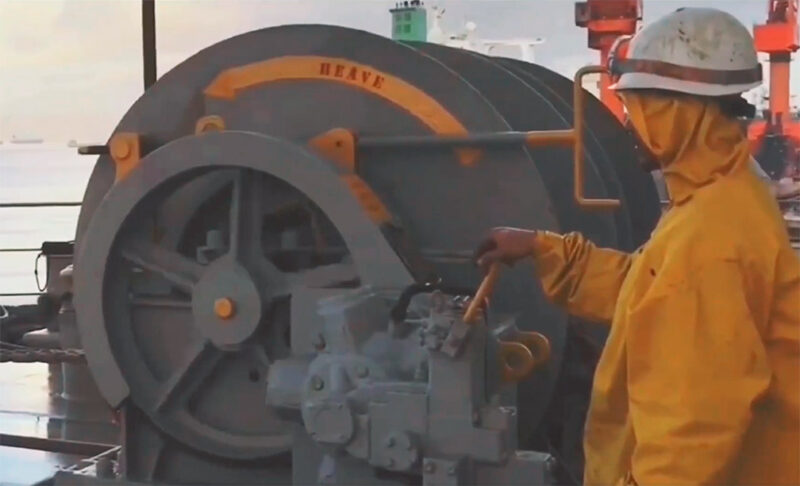-
Both houses of Congress on July 31 approved on third reading the bicameral conference committee report on the Magna Carta of Filipino Seafarers
-
The committee report reinstated Section 59, mandating payment of a bond by a Filipino seafarer before monetary benefits from disability are released
-
Senators Aquilino Pimentel III and Risa Hontiveros voted against approval of the report due to the return of the bond
-
Senator Raffy Tulfo said the insertion of the bond requirement aims “to balance the interest of both seafarers and employers to ensure the continued employability of Filipino seafarers”
Both houses of Congress on July 31 approved on third reading the bicameral conference committee report on the Magna Carta of Filipino Seafarers.
The committee report reinstated Section 59, mandating payment of a bond by a Filipino seafarer before monetary benefits from disability are released.
The bicameral measure aims to address recurring deficiencies in the domestic laws pertaining to the training and accreditation of thousands of Filipino seafarers which endanger their employment in the European market in particular, and the global maritime arena, in general.
It specifies the rights and ensure the welfare of Filipino seafarers, including the reintegration program, grievance system, and social welfare benefits.
Senators Aquilino Pimentel III and Risa Hontiveros, however, voted against approval of the bicameral report as they expressed concern over the return of the controversial provision that mandates the payment of a bond by a Filipino seafarer before monetary benefits from disability are released.
The first bicameral report was approved by Congress in December 2023 but was vetoed by President Ferdinand Marcos, Jr. in February 2024. The bicameral conference committee was reconstituted and the second bicameral conference committee report was approved in May 2024 without the bond requirement, but then the report was withdrawn.
Another bicameral conference committee was reconstituted on July 29 and approved the third report, which was approved and ratified on July 31.
in his sponsorship speech during the session, Senator Raffy Tulfo reported that the conferees of the bicameral conference committee agreed to include Section 59 (Execution of Judgment and Monetary Awards) “to balance the interest of both seafarers and employers to ensure the continued employability of Filipino seafarers by providing a more favorable and reasonable legal environment for employers and shipowners and to finally address the pressing problem of ambulance chasing without compromising the interest of Filipino seafarers and with minimal or completely no cost to them.”
Asked which chamber reinstated Section 59, Tulfo said it was their colleagues “in the Lower House that did suggest bringing back the bond provision for the purpose of employability for our seafarers.”
Pimentel said he has “serious misgivings about the procedure taken in reaching the report where the bicameral conference was conducted and terminated three times already resulting in basically three different reports.”
“In the newly inserted Section 59, a bond must be posted by the seafarers before a writ of execution is issued in their favor. If we approve this requirement of posting a bond, decisions in favor of Filipino seafarers cannot be executed until the foreign employer has exhausted all its appeals up to the Supreme Court. This is clearly discriminatory if not unjust to our seafarers who for obvious reasons file for monetary claims because of financial distress.”
To “appease” seafarers, Pimentel said the bill includes “a small window to execute the favorable decision pending appeal if he files a supersedeas bond… the government may even assist in posting a bond.”
The supersedeas bond is also known as defendant’s appeal bond.
“This seems like a good idea unless you have had experience procuring a supersedeas bond. Insurance companies, aside from charging exorbitant premiums, require the applicant to give collateral usually in the form of cash deposits at least equal to the monetary award. This appeasement therefore is illusory.”
Senator Joel Villanueva also cautioned on the use of taxpayers’ money to pay for the bond.
Despite his concerns, Villanueva voted in favor of approving the bicameral report as he said the measure is “needed” and is “still better than status quo.”
Local seafarers’ groups, such as the Concerned Seafarers of the Philippines and Association of Marine Officers and Ratings Inc., oppose the bond requirement.
Foreign groups International Chamber of Shipping and the International Maritime Employers’ Council, on the other hand, earlier asked Marcos to again include Section 59, saying it is “intended to address the longstanding problem of ambulance chasing, spearheaded by ambulance-chasing lawyers with significant consequences for the maritime employment landscape in the Philippines and resulting in seafaring jobs being driven away from the country.”









